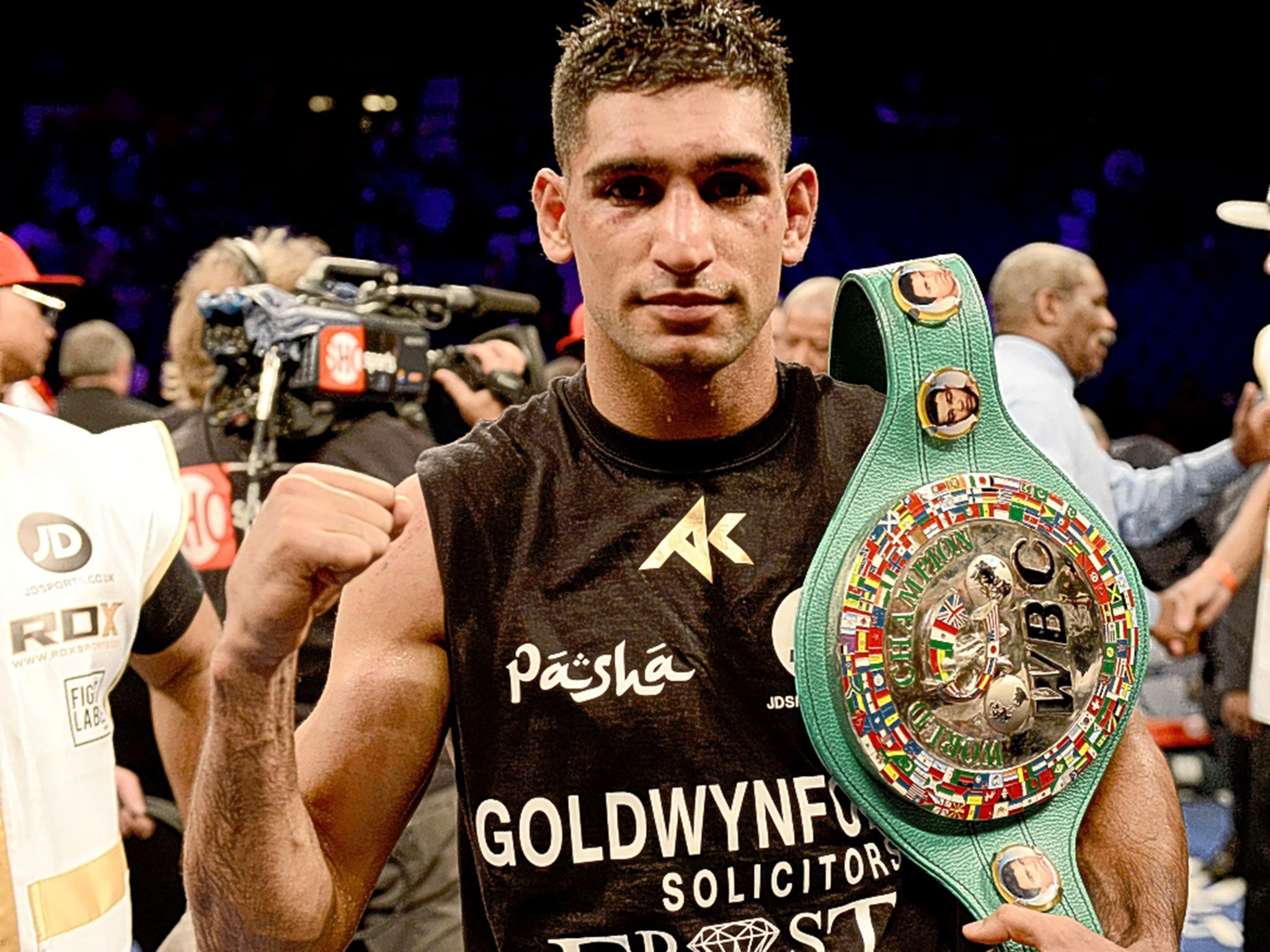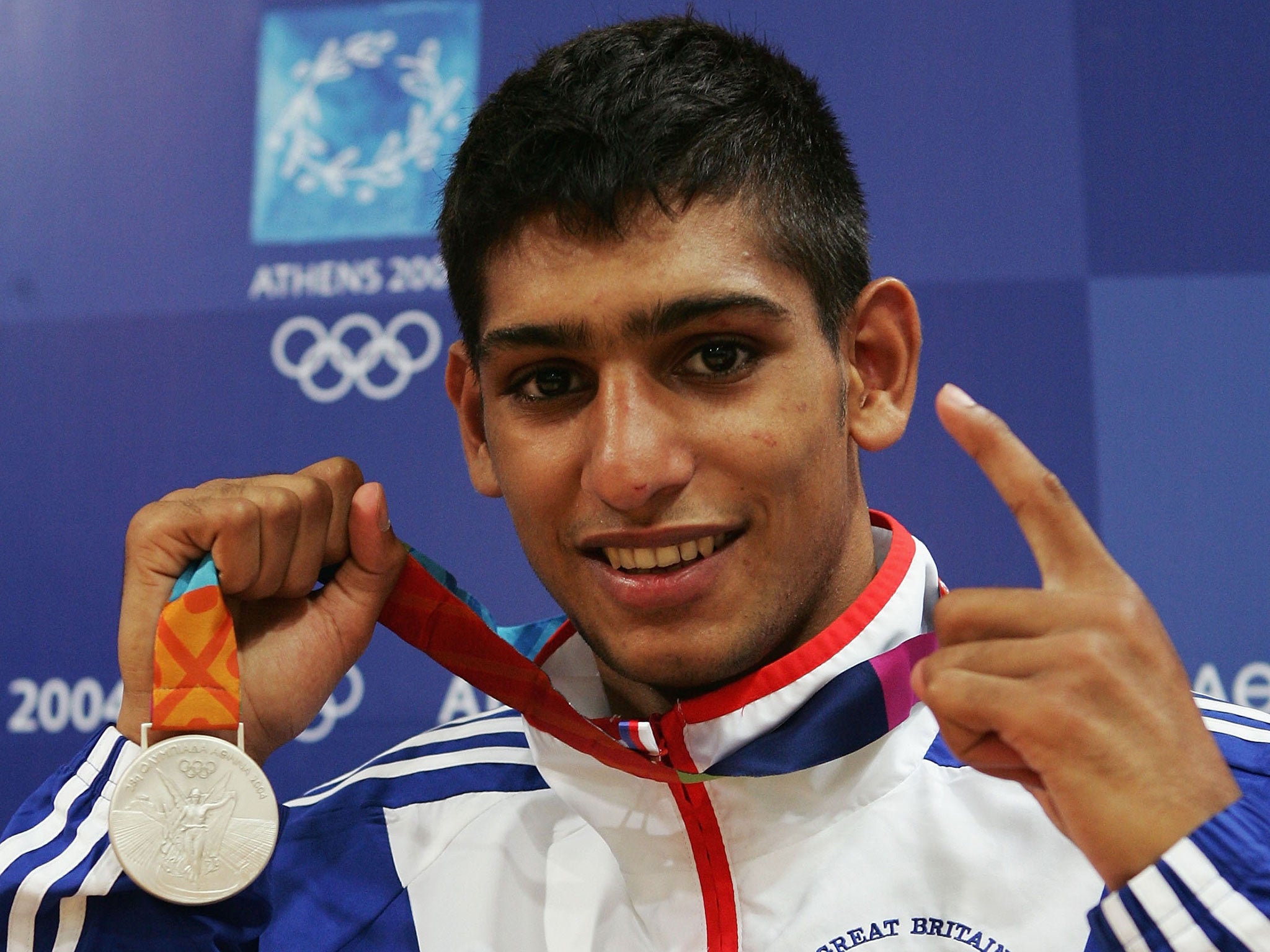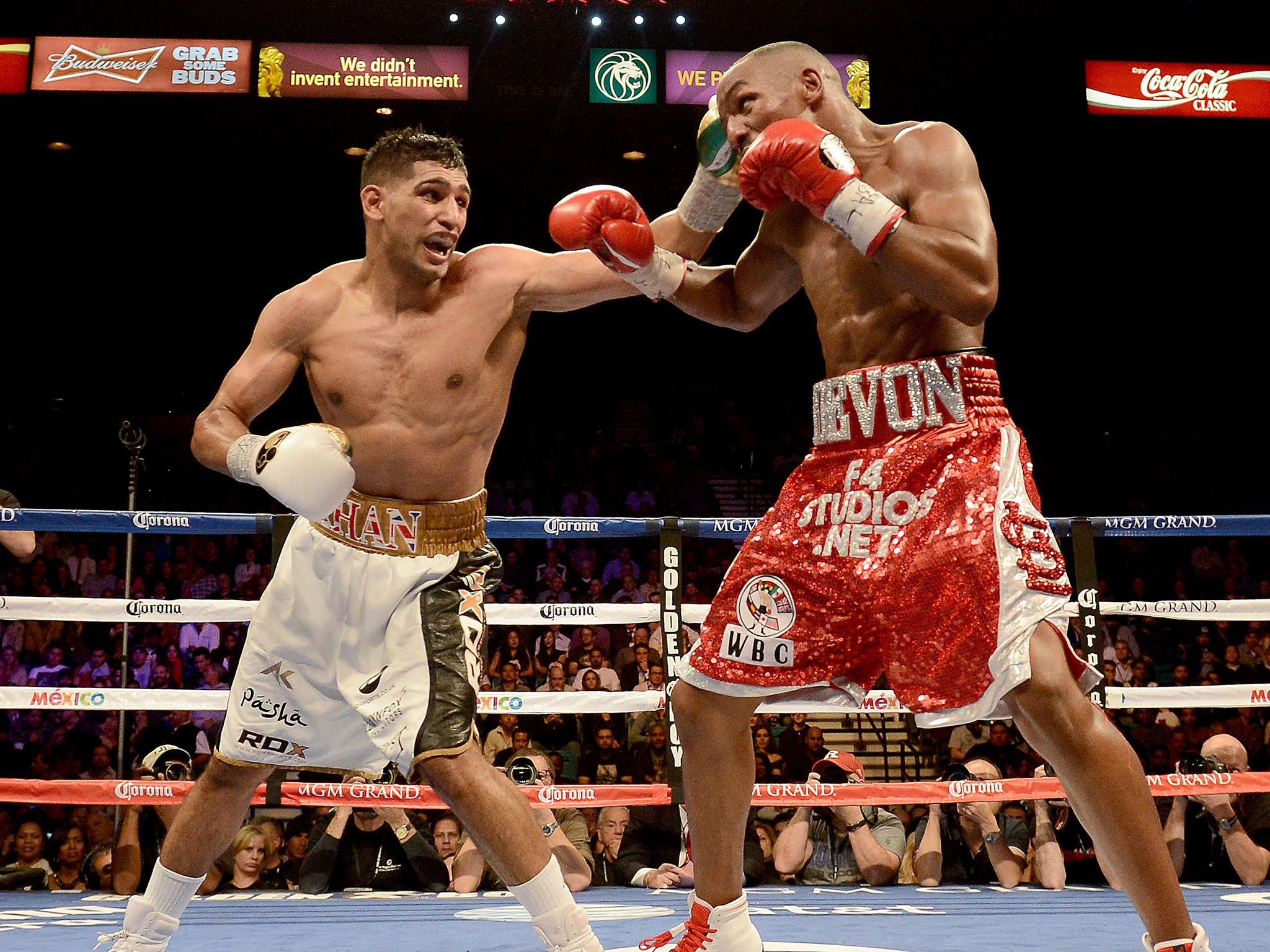Kevin Garside: The admirable Amir Khan is still blazing a proud trail for British Asians
Khan dismantled Alexander in the early hours of this morning

Your support helps us to tell the story
From reproductive rights to climate change to Big Tech, The Independent is on the ground when the story is developing. Whether it's investigating the financials of Elon Musk's pro-Trump PAC or producing our latest documentary, 'The A Word', which shines a light on the American women fighting for reproductive rights, we know how important it is to parse out the facts from the messaging.
At such a critical moment in US history, we need reporters on the ground. Your donation allows us to keep sending journalists to speak to both sides of the story.
The Independent is trusted by Americans across the entire political spectrum. And unlike many other quality news outlets, we choose not to lock Americans out of our reporting and analysis with paywalls. We believe quality journalism should be available to everyone, paid for by those who can afford it.
Your support makes all the difference.Crammed around a TV monitor in a motorhome in the Valencia paddock, a cluster of British journalists stood in rapt awe as the 17-year-old boy continued his journey to the Olympic lightweight final in Athens.
Amir Khan will be the memory of these Games, said the coach of Baik Jong-sub, the Korean boxer dispatched inside a round of their quarter-final bout. He was certainly one of the stories of the 28th Olympiad, a British Asian carrying the nation with him in troubled times.
He lost in the final to the brilliant Cuban Mario Kindelan, a defeat avenged the following May in Bolton, a ceremonial meeting which wrapped in gold stars Khan’s final amateur bout and brought a close to the remarkable career of the double Olympic champion.
A decade on from that silver medal performance, we reflect on his latest professional triumph, one that he hopes will entice into the ring the great Floyd Mayweather Jnr, some time next year.
Good luck with that, Amir. If history is any guide, the forensic dismantling of Devon Alexander in the early hours of this morning will have shunted Khan down the pack of potential opponents for Mayweather, since it contained within it the seeds of defeat for the great one.
If Mayweather is ever to be downed in this life it will be speed that does it, and there is none, bar Mayweather himself, who fires punches at the same velocity as Khan, nor who moves his feet with the same efficacy. Khan might be just too much of a threat in this phase of Mayweather’s career when the reflexes are beginning to slow and the fractions no longer favour him.
In many ways Khan is engaged in a broader battle, and always has been. In the dream narrative that we like to attach to talents like Khan he would, in our imagination, go on to establish one of the great British boxing careers, blazing a multicultural trail from an ethnic background without precedent in the Manchester milieu.
Khan was the only British Asian in Mick Jelley’s gym in Bury. He did not share one bill, let alone a ring, with a British Asian as an amateur. And though Naseem Hamed, a British-born son of Yemeni Arabs, had fashioned a significant career, the dial was still slow to move in the direction of wider inclusion of British Asians in the sport.
Such was Khan’s appeal during his Olympic odyssey – the final with Kindelan drew a live TV audience of seven million plus – it seemed he might be on the verge of the magical and altogether more substantial step of erasing from view his ethnic profile, and instead be seen simply as British. This is most certainly how he feels, although the issue is not without complications.
Post-war immigration led to the necessary grouping of communities, which left its own imprint on the British landscape with the maps of many cities and towns redrawn along racial lines. Though Khan’s parents moved out of Bolton’s Asian quarter as his father, Shah, moved up the socio-economic ladder, he remains in many ways a boy from the hood. He is proud of that, too. It informs him still, and why shouldn’t it?

A stroll around Southall, Luton or Bradford, for example, reveals how Asian cultural influence has spread, becoming ingrained and ultimately, after much pain, accepted. Khan and the British Asians that follow are by increments moving the story on.
Khan made his professional debut in July 2005, nine days after a radicalised group – three of whom were, just like him, British-born sons of Pakistani immigrants, one even the same age as him – detonated a series of bombs in central London, the worst terrorist attack within these shores since Lockerbie in 1988. A total of 52 people were murdered and the four perpetrators also died.
Khan was plunged into the centre of a national crisis and took on the role of assimilated British Muslim, antidote to the fundamentalist tendency in the margins of society, with the same otherworldly maturity that he brought to the boxing experience.

It was a privilege around this time to spend many weeks in his company, as his collaborator on his autobiography, A Boy From Bolton. While many thought it absurd that a teenager could pen the story of his life, it was clear that people like Khan cram half a dozen lives into one.
The story of his Olympic qualification was worth the tome alone, long journeys to box hard men from distant lands with much greater experience. That took not only skill but mettle. His relationship with the country of his birth and his Pakistani forebears was also explored in his book, and again was compelling stuff.
Khan was forging a unique trail. Still is. I hope he gets his wish against Mayweather. It will test every sinew of his being. He has been there before and survived. The wider significance of his career is cultural. At some point in the future that might merit a second visit – as would a match with Mayweather, of course.
Join our commenting forum
Join thought-provoking conversations, follow other Independent readers and see their replies
Comments